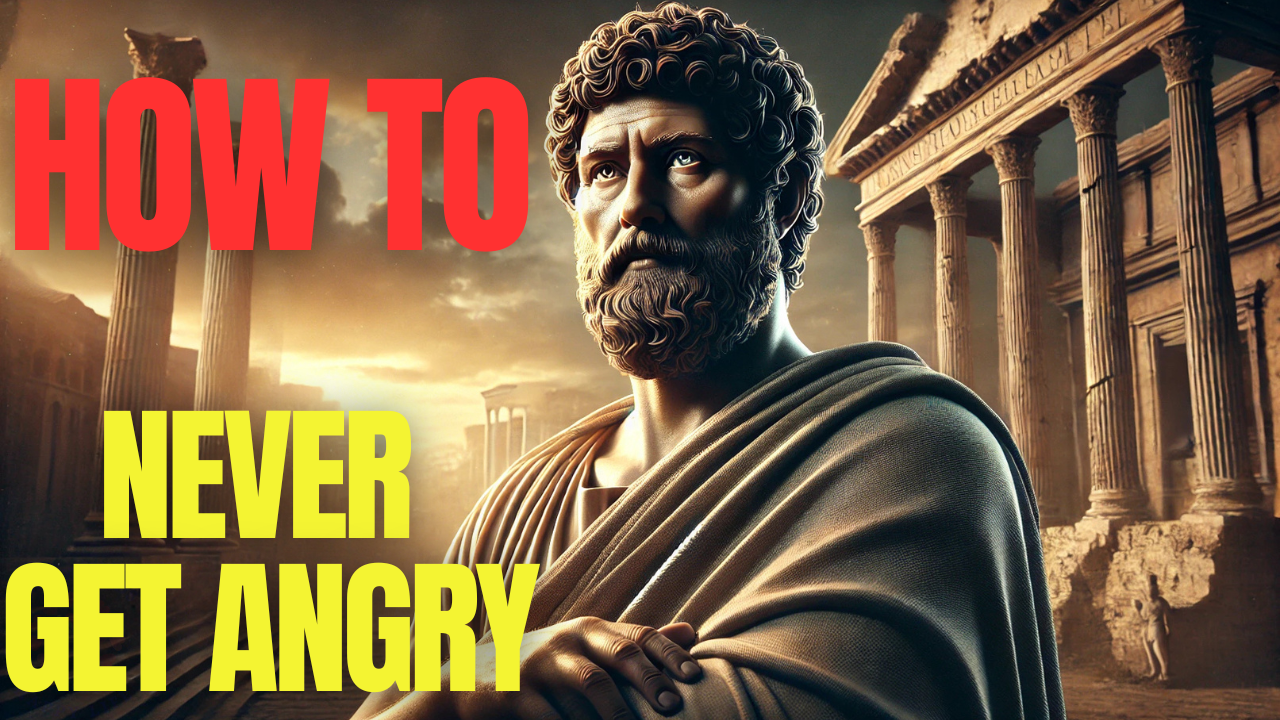Discover how to master Stoicism and never get angry or bothered again. Learn 10 powerful lessons to stay calm, unshaken, and in control no matter what life throws at you.
Table of Contents
Introduction: The Power to Never Get Angry or Bothered
Have you ever let someone’s words or actions ruin your entire day? A rude comment, a thoughtless gesture, or an unexpected inconvenience—it’s frustrating, isn’t it? But here’s the truth: No one has the power to control your emotions unless you give it to them.
What if you could remain calm and unshaken no matter what life throws your way? Imagine walking through your day with a sense of peace so strong that nothing could rattle you. That’s not just wishful thinking—it’s emotional mastery.
Mastering your emotions isn’t about ignoring how you feel. It’s about choosing how you respond. The rude stranger, the inconsiderate coworker, the unexpected inconvenience—none of them have the power to make you angry or bothered unless you let them.
When you learn to:
- Control your reactions
- Release expectations
- Let go of the need to be right
- Detach your worth from others’ words
- Set firm boundaries
You gain something priceless: Unshakable peace and the ability to never get angry or bothered.
So, the next time someone tries to push your buttons, remember: Their behavior doesn’t define you. Your reaction does.
Choose calm. Choose strength. Choose freedom. In this guide, we’ll uncover 7 powerful lessons that will help you master Stoicism and never get angry or bothered again.
Lesson 1: Your Reactions Are Your Choice – Never Get Angry or Bothered
Picture this: You’re having a peaceful morning, sipping coffee or walking in the park. Suddenly, someone says something rude or inconsiderate, and your calm vanishes. You think, Why did they ruin my day? But here’s the reality—they didn’t. You did.
Your emotions are your responsibility. No one can control how you feel unless you allow them to. Think of it like wearing noise-canceling headphones in a loud city. The chaos doesn’t disappear, but it doesn’t have to affect you. You decide what gets through.
A wise thought sums it up perfectly:
Between stimulus and response, there is a space. In that space lies our power to choose our response. In our response lies our growth and our freedom.
Instead of reacting impulsively, try this:
- Pause and identify your emotion—anger, frustration, irritation.
- Ask yourself: Is my reaction about what happened, or how I’m interpreting it?
- Choose your response based on long-term peace, not a fleeting emotion.
When you master this, you reclaim your power and learn how to never get angry or bothered again.
Lesson 2: Stop Expecting Others to Behave Like You – Never Get Angry or Bothered
Have you ever been there for someone, only to have them ignore you when you needed them? You think, I would never treat them that way. But here’s the hard truth: People act based on their own values, not yours.
Expecting others to think, behave, or respond like you is like trying to control the weather. It only leads to frustration. Instead, accept people for who they are, not who you want them to be.
A powerful reminder:
Expectations are the root of all suffering.
Instead of expecting, try this:
- Acknowledge your assumptions – What was I expecting them to do?
- Challenge the expectation – Is it realistic to expect them to act as I would?
- Shift your focus – Instead of trying to change them, choose how you respond.
When you stop expecting others to meet your standards, you free yourself from unnecessary emotional turmoil and learn how to never get angry or bothered.
Lesson 3: Let Go of the Need to Always Be Right
Think back to your last argument. Did you feel the urge to prove your point? We all have. But the need to always be right is exhausting. It doesn’t bring peace—it brings stress.
Ask yourself:
- Would I rather be right or at peace?
- Is this argument worth my energy?
When you stop trying to “win” every debate, you start winning internally. Instead of fighting, say, I see where you’re coming from, and move on. Not every battle is worth your peace.
Lesson 4: Stop Letting Others’ Words Define Your Worth
Someone criticizes you, and suddenly your confidence shatters. Why? Because you’ve given their words too much power.
Here’s the truth: Your worth isn’t tied to someone else’s opinion.
We care more about others’ opinions than our own. But why? – Marcus Aurelius
Instead of reacting to criticism:
- Pause before responding. Breathe before you react.
- Separate fact from opinion. Is their comment valid or just their perspective?
- Reaffirm your worth. You define you—not them.
When you stop letting others dictate your self-worth, you gain true freedom.
Lesson 5: Protect Your Energy by Setting Boundaries
Why is it so hard to say no? Because we fear letting people down. But protecting your peace requires setting boundaries.
You can’t pour from an empty cup.
Boundaries aren’t selfish. They’re necessary. Without them, you let others dictate your time and emotions.
Try this:
- Be clear and honest. Communicate your limits directly.
- Use “I” statements. Say I need some quiet time after work instead of You always bother me.
- Stick to your boundaries. Consistency earns respect.
When you set boundaries, you don’t push people away—you create healthier relationships and protect your peace.
Lesson 6: Detach from the Opinions of Others
Imagine you share an idea you’re proud of, only to receive criticism. That sting of disappointment can spiral into self-doubt. But ask yourself: Why does their opinion carry so much weight?
Care about people’s approval and you will be their prisoner. – Lao Tzu
Instead of seeking approval, remind yourself:
- Question their importance – Do they have authority over my life?
- Reaffirm your values – Focus on what you believe in.
- Practice letting go – Picture their words as leaves floating down a stream—there, but not lasting.
By detaching, you reclaim your freedom and protect your peace.
Lesson 7: Respond with Silence, Not Anger
Imagine someone insults you. Your instinct is to fire back. But what if you simply said… nothing?
The best answer to anger is silence. – Marcus Aurelius
Silence is not weakness. It’s choosing calm over chaos. When you refuse to engage, you hold the power.
Here’s how to make silence your go-to response:
- Pause before reacting. Breathe.
- Listen without defending. Let them vent.
- Speak only when necessary. If needed, respond calmly and briefly.
By choosing silence, you protect your peace, demonstrate strength, and control the narrative.
Conclusion: The Secret to Never Getting Angry or Bothered
Life will always present challenges—difficult people, unexpected setbacks, and frustrating situations. But the key to never getting angry or bothered lies in how you respond, not in what happens to you.
By mastering Stoic principles, you:
- Take control of your emotions instead of being controlled by them.
- Let go of expectations that set you up for disappointment.
- Prioritize peace over the need to be right.
- Detach from external opinions that don’t define your worth.
- Set boundaries that protect your energy and well-being.
True freedom is realizing that you are not at the mercy of others’ words or actions. You are in control. Every situation presents a choice: react with frustration or respond with strength.
So the next time life tests your patience, choose peace, choose strength, and choose to never get angry or bothered again.
More Article : 3 Secrets Smart People Keep Private at All Costs




